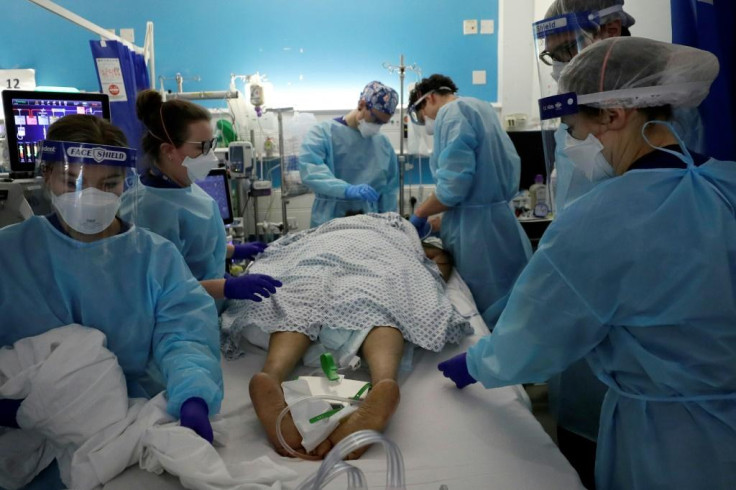NHS Working Group Launched for Life-Threatening Heart Condition Aortic Dissection
An NHS working group of experts and charities are tasked to find out ways to improve the lives of people suffering from life-threatening heart condition aortic dissection in six months.

British people suffering from a killer heart condition are set to get relief as the UK government announced plans to strengthen diagnosis and treatment.
Aortic dissection is a life-threatening heart condition where a tear in the aorta, a blood vessel carrying blood from the heart to the body, gets affected, ultimately resulting in a drop in blood pressure in patients which can lead to sudden deaths. The disease is one of the rare heart conditions that kills 2,000 people a year in Britain.
The Department of Health and Social Care announced measures to tackle aortic dissection on September 22.
Health Secretary Steve Barclay assured that the UK government and NHS England are working together to build a wide network of support for the patients of aortic dissection.
The Health Secretary was speaking at a research event to raise awareness of the life-threatening heart condition that affects many people in Britain. Barclay revealed that the Rishi Sunak government is forming an NHS working group of clinical experts and charities to support aortic dissection patients.
The primary objective of this NHS working group is to improve the diagnosis and treatment of aortic dissection, said the Health Secretary on Aortic Dissection Awareness Day.
The experts will work together to identify bottlenecks in the treatment procedure based on information gathered from patient experience. This will help in locating opportunities where better modes of diagnosis and treatment like genetic testing could be used.
As part of the plan, NHS England adjusted 111 and 999's triage systems for better detection of chest pains that happen in aortic dissection patients. Based on that an Aortic Dissection Acute Toolkit has been launched to speed up diagnosis and treatment. Along with this, the Royal College of Emergency Medicine has launched a detailed best practice guideline for emergency departments to improve diagnosis
The UK government has allocated £50 million to the National Institute for Health and Care Research for conducting cardiovascular disease research on the subject. UK researchers working on this project will develop a tool to detect the genetic risk of aortic dissection. Based on this early risk detection a thorough preventive treatment for aortic dissection would be suggested.
The NHS working group on aortic dissection has four critical agendas including monitoring and implementing the Aortic Dissection toolkit, reviewing the aortic dissection patients and identifying areas of improvement, finding genetic screening options and enhancing the clinical skills of the workforce wherever needed.
NHS Working Group to better the lives of patients with aortic dissection
Speaking about the matter, Health Secretary Steve Barclay revealed that developing a holistic approach for the treatment of this life-threatening disease is the primary criteria of the UK government.
Barclay termed the life-threatening heart condition "devastating" and one that takes the lives of people on the roads of the UK. The Health Secretary was quick to underline the lack of awareness in the matter which is why the government is keen on raising awareness to save lives.
The UK government seeks to build on the existing good work on aortic dissection by identifying potential risk areas and providing first-class follow-up care, said Barclay.
The Health Secretary also acknowledged the hard work of his colleague and conservative MP from mid-Derbyshire Pauline Latham who campaigned tirelessly for better aortic dissection care. Latham had lost her son to an undiagnosed aortic dissection back in 2018. Since then, she has championed the cause, always speaking for friends and families of the patients.
Earlier this year Latham met Barclay and pressed for urgent action to improve aortic dissection care. Building on that, the Health Secretary has instructed the NHS working group to suggest better treatment options in six months which will be used by charities working for this life-threatening heart condition.
Speaking about the NHS working group formation, Pauline Latham revealed how Catherine Fowler, Graham Cooper and she created the Aortic Dissection Charitable Trust after the death of her son Ben.
Latham elaborated on how this materialised after endless questions in the Parliament and meetings with health ministers. Latham said she was thrilled when the NHS England and the Department for Health and Social Care came on board with the working group plan.
The new measures will standardise aortic dissection care and bring genetic screening and specialised nurses to the patients suffering from this life-threatening heart condition, said Latham.
According to Latham, it will turn "tragedy into a safe future" and improve the quality of life of the patients.
© Copyright IBTimes 2025. All rights reserved.




















